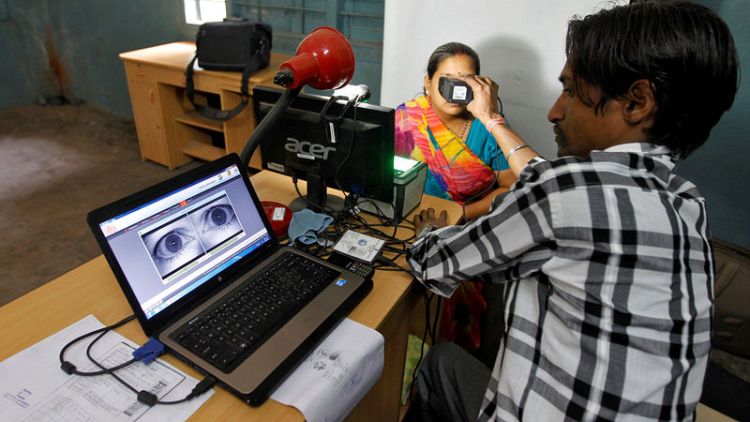NEW DELHI (Reuters) - India's top court on Wednesday upheld the constitutional validity of the country's ambitious biometric identity project 'Aadhaar', saying it benefits the marginalized and poor, but raised multiple concerns around the law that governs it, calling for changes.
A five-judge bench of the Supreme Court of India said benefits under the Aadhaar project should be in the nature of welfare schemes and it cannot be made compulsory for services such as bank accounts, mobile connections or school admissions.
Among other things, India's unique Aadhaar number - linked to an individual's face, iris and finger prints - is used to help plug theft and leakages in the $23.63 billion (£17.9 billion) a year food welfare programme.
(Reporting by Suchitra Mohanty and Sudarshan Varadhan; Writing by Sankalp Phartiyal; Editing by Euan Rocha)
